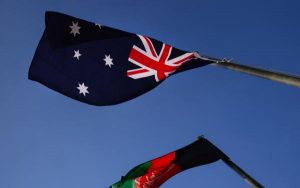The Inspector-General of the Australian Defense Force Afghanistan (IGADF) Inquiry Report, commonly known as the Brereton Report, released in November 2020, detailed how Australian special forces in Afghanistan had committed at least 39 illegal killings.
The report’s findings, while not a surprise to most Afghans, shook Australia’s defense community and the government, and further diminished Australia’s role in the region. The report, while redacted, detailed how the killings were the result of “criminal behaviour” that was “commenced, committed, continued and concealed at the patrol commander level.”
The Inspector-General concluded that it is “the most disgraceful episode in Australia’s military history.”
But as details surrounding the incidents began to unfold, further abuses have now emerged. Australian photographer and journalist Andrew Quilty has spent years investigating the allegations of unlawful killings and abuse against Afghans by the Australian Special Operations Task Group (SOTG).
Quilty, in a recent report for the Monthly Magazine, said staff from the office of the Afghan Independent Human Rights Commission in Uruzgan told him in January that since the Brereton Report was released, they had fielded 38 claims of killings and abuse, with a total of 122 killed, including 28 women and children, and 40 injured.
“Twenty to 25 of those are completely new cases that we weren’t previously aware of,” Haji Abdul Ahad Bahai, the head of the commission office, told Quilty, who himself documented a total of 25 deaths during a reporting trip to Tirin Kot, the capital of Uruzgan province.
“It’s fair to say the IGADF Inquiry Report doesn’t represent anywhere near the full extent of the abuses committed by the SOTG,” Quilty, who lives in Afghanistan, told The Diplomat.
Despite Quilty’s recent findings, Australia has done little to reckon with the most recent revelations. Quilty believes this is partly due to Australia’s lack of an appetite to continue a conversation that is so damaging to its national standing and so far removed from what Australians are used to paying attention to.
“For the Australian public, the government and the ADF more generally, the allegations of war crimes against the country’s most revered soldiers are deeply uncomfortable, but it’s troubling that certain portions of the population believe these units and their commanders should be beyond reproach, especially when their alleged actions undermined their very mission and, therefore, Australian national self-interest,” he said.
Since the first allegations become public, few people in Australia have accepted responsibility. One of the people accused has lodged defamation cases against news organizations that have reported on the allegations against him.
Prime Minister Scott Morrison has rejected the report’s recommendation to provide compensation to victims, while Defense Minister Peter Dutton earlier this week announced that he would not be revoking the meritorious unit citations awarded to members of the SOTG, which Quilty said suggests the government is “prioritizing the well-being of alleged perpetrators rather than victims.”
One local tribal elder told Quilty that he expects little to come from the report.
“First, I don’t trust that they’ll help the people or act on the report. Second, they won’t be able to help all the victims because there aren’t just [39] of them … This figure doesn’t represent even a fraction of the reality,” he said.
Quilty said aside from the arguments over moral responsibility and justice for victims, the allegations represent not only a failure to implement national military strategy and foreign policy but the enabling of practices that actively undermined them.
“My reporting linked SOTG behavior to Taliban recruitment… For anyone who believes in the necessity of our alliances with, for e.g., the U.S., imagine being the U.S. secretary of defense looking for partners in a hypothetical future conflict, and whether you’d be asking for the assistance from a special forces outfit who had a history of undermining its own mission,” he said.
“In that sense, any leverage Australia’s military may have given the Australian government in relation to strategic partnerships prior to its military engagement in Afghanistan may be less valuable now, unless substantive action is taken to bring perpetrators of alleged war crimes to justice and to address the problems that allowed them to occur in the first place.”































